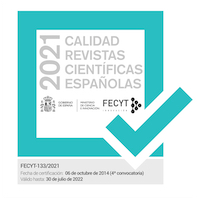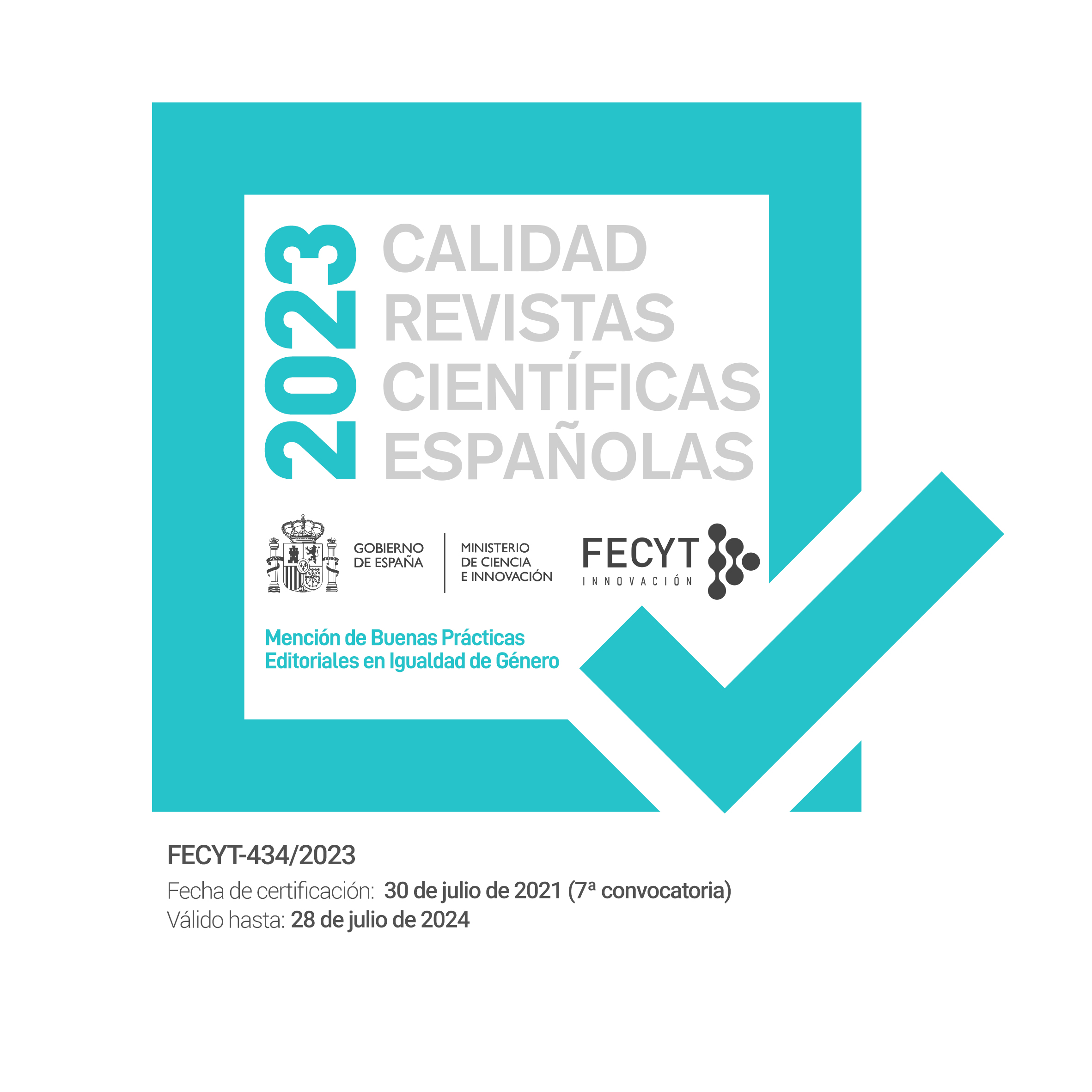Análisis histórico de los factores de transformación y evolución del derecho
Palabras clave:
diritto naturale, storia del diritto, evoluzione del diritto, trasformazione giuridicaResumen
Storicamente, il termine "evoluzione del diritto" o "evoluzione giuridica" è spesso usato per descrivere un gruppo di teorie che pretendono di spiegare i cambiamenti giuridici non solo in termini storici, ma attraverso un processo secondo certe fasi determinate o predeterminate. È stato sottolineato che queste teorie nelle loro forme pienamente sviluppate sono essenzialmente un fenomeno del diciannovesimo secolo, tuttavia, è sempre più evidente che tali idee sono ancora valide tanto che il ventesimo secolo ha visto una grande rinascita di interesse nelle teorie dell'evoluzione del diritto che continua ancora oggi. Il diritto come sistema di norme e dottrine non rimane immutabile, ma cambia e si evolve. Attraverso una prospettiva storica analizzeremo i principali fattori che determinano le trasformazioni del diritto.
Parole chiave: diritto naturale; storia del diritto; evoluzione del diritto; trasformazione giuridica.
Citas
Beaulier, Scott A., Boettke, Peter J., and Coyne, Christopher J. “Knowledge, Economics and Coordination: Understanding Hayek’s Legal Theory.” NYU Journal of Law and Liberty 1 (2005): 209-224.
Becker, Gary S. “A Theory of Competition Among Pressure Groups for Political Influence.” The Quarterly Journal of Economics 98 (1983): 371-400.
Clark, Robert Charles. “The Morphogenesis of Subchapter C: An Essay in Statutory Evolution and Reform, Faculty Scholarship Series.” The Yale Law Journal 87 (1977): 90-162.
Cooter, Robert, and Kornhauser, Lewis. “Can Litigation Improve the Law without the Help of Judges?.” J. Legal Stud. 9 (1980): 139-163.
Dawkins, Richard. El gen egoísta. Las bases biológicas de nuestra conducta. Barcelona, 1993.
Deakin, Simon. “Evolution for Our Time: A Theory of Legal Memetics.” Current Legal Problems 55 (2002): 1-42.
Dequech, David. “Neoclassical, mainstream, orthodox, and heterodox economics.” Journal of Post Keynesian Economics 30 (2014): 279-302.
Du Laing, Bart. “Dual Inheritance Theory, Contract Law, and Institutional Change – Towards the Co-Evolution of Behavior and Institutions.” German Law 9 (2008): 491-514.
Du Laing, Bart. “Bio-Legal History, Dual Inheritance Theory and Naturalistic Comparative Law: On Content and Context Biases in Legal Evolution.” Review of Law & Economics 7 (2011): 685-709.
Eckardt, Martina. “Explaining Legal Change from an Evolutionary Economics Perspective.” German Law Journal 4 (2008): 437-464.
Elliot, E. Donald. “The Evolutionary Tradition in Jurisprudence.” Columbia Law Review 85 (1985): 38-94.
Elliot, E. Donald, Ackerman, Bruce A, and Millian, John. C. “Toward a Theory of Statutory Evolution: The Federalization of Environmental Law.” The Journal of Law, Economics, and Organization 1 (1985): 313-340.
Epstein, Richard. “A Taste for Privacy?: Evolution and the Emergence of a Naturalistic Ethic.” J. Legal Stud. 9(1980): 665-681.
Fried, Michael S. “The evolution of legal concepts: the memetics perspective.” Jurimetrics 39 (1999): 291-316.
Goodenough, Oliver. “Cultural Replication Theory and Law.” The Gruter Institute Working Papers on Law, Economics and Evolutionary Biology 1 (2001): 1-15.
Hayek, Friedrich A. Law, Legislation and Liberty. London, 1982.
Heiner, Ronald A. “Imperfect Decisions and the Law: On the Evolution of Legal Precedent and Rules.” The Journal of Legal Studies 15 (1986): 227-261.
Hirshleifer, Jack. “Privacy: Its Origin, Function, and Future.” The Journal of Legal Studies 9 (1980): 649-664.
Hovenkamp, Herbert J. “Evolutionary Models in Jurisprudence.” Texas Law Review 64 (1985): 645-685.
Jones, Owen D, and Goldsmith, Timothy H. “Law and Behavioral Biology.” Columbia Law review 105 (2005): 405-502.
Jones, Owen D. “Propriocepcion, non-law and biolegal history.” Florida Law Review 53 (2001): 831-874.
Keller, Albert G. “Law in Evolution.” The Yale Law Journal 28 (1919): 769-783.
Kessler, Friedrich. “Arthur Linton Corbin.” The Yale Law Journal 78 (1969): 517-524.
Kocourek, Albert, and Wigmore, John Henry. Evolution of law; Select readings on the origin and development of legal institutions. Vol I. Sources of Ancient and Primitive Law. Boston, 1915-1918.
Lumsden, Charles K, and Wilson, Edward O. “The relation between biological and cultural evolution.” Journal of Social and Biological Structures 8 (1985): 343-359.
Mousourakis, George. “Conceptualizing Legal Change: A Comparative Law Approach.” Acta Juridica Hungarica 48 (2007): 259-280.
Picker, Randal C. “An introduction to Game Theory and the Law.” Coase-Sandor Institute for Law & Economics 22 (1994): 1-23.
Posner, Richard A. El Análisis Económico del Derecho. México, 2000.
Priest, George L, and Klein, Benjamin. “The Selection of Disputes for Litigation.” The Journal of Legal Studies 13 (1984): 1-55.
Priest, George L. “The Common Law Process and the Selection of Efficient Rules.” The Journal of Legal Studies 6 (1977): pp. 65-82.
Reimann, Mathias. “Nineteenth Century German Legal Science.” Boston College Law Review 31 (1990): 837-897.
Rizzo, Mario J. “The Mirage of Efficiency.” Hofstra Law Review 8 (1980): 641-658.
Robinson, Paul H, Kurzban, Robert O, and Jones, Owen D. “The Origins of Shared Intuitions of Justice.” Vanderbilt Law Review 60 (2007): 1633-168.
Rodgers, William H. Jr. “Bringing People Back: Toward A Comprehensive Theory of Taking In Natural Resources Law.” Ecology Law Quarterly 10 (1982): 205-252.
Roe, Mark J. “Chaos and Evolution in Law and Economics.” Harvard Law Review 109 (1996): 641-668.
Rubin, Paul H. “Why Is the Common Law Efficient?.” The Journal of Legal Studies 6 (1977): 51-63.
Ruhl, John B. “The Fitness of Law: Using Complexity Theory to Describe the Evolution of Law and Society and its Practical Meaning for Democracy.” Vanderbilt Law Review 49 (1996): 1407-1490.
Schwartz, Richard D, and James C, Miller. “Legal Evolution and Societal Complexity.” American Journal of Sociology 70 (1964): 159-169.
Segerstrale, Ullica. “Colleagues in conflict: An in vivo analysis sociobiology controversy.” Biology and Philosophy 1 (1986): 53-87.
Sinclair, Michael B. W. “The Use of Evolution Theory in Law.” University of Detroit Law Review 64 (1987): 451-477.
Singer, Brian C. J. Montesquieu and the Discovery of the Social. New York, 2013.
Śledzik, Karol. “Schumpeter’s view on innovation and entrepreneurship.” Management Trends in Theory and Practice (2013): 89-95.
Slembeck, Tilman. “The Formation of Economic Policy: A Cognitive-Evolutionary Approach to policy-Making.” Constitutional Political Economy 8 (1997): 225-254.
Slembeck, Tilman. “Ideologies, Beliefs and Economic Advice – A Cognitive – Evolutionary View on Economic Policy–Making.” Public Economics 12 (2000): 1-31.
Smits, Jan M. “Applied Evolutionary Theory: Explaining Legal Change in Transnational and European Private Law.” German Law Journal 9 (2008): 477-491.
Stein, Peter. Legal Evolution. The story of an idea. Cambridge, 1980.
Summer Maine, Henry. Ancient Law: Its connection with the early history of society and its relation to modern ideas. London, 1908.
Vermeule, Adrian. “The Invisible Hand in Legal and Political Theory.” Virginia Law Review 96 (2010): 1417-1452.
Von Savigny, Frederick. On the Vocation of Our Age for Legislation and Jurisprudence. London, 1831.
Wells, Catherine P. “Legal Innovation Within the Wider Intellectual Tradition: The Pragmatism of Oliver Wendell Holmes, Jr.” Northwestern University Law Review 82 (1988): 541-595.
Wendell Holmes, Oliver. The Common Law. Toronto, 2011.
Wilson, Edward O. “Man: From Sociobiology to Sociology.” Sociobiology The New Synthesis. Cambridge, 1975.
Zamboni, Mauro. “From Evolutionary Theory and Law to a Legal Evolutionary Theory.” German Law Journal 9 (2008): 515-546.
Zumbansen, Peer., and Calliess, Gralf Peter. “Law, Economics, and Evolutionary Theory: State of the Art and Interdisciplinary Perspectives.” Comparative Research in Law & Political Economy 10 (2010): 1-26.









